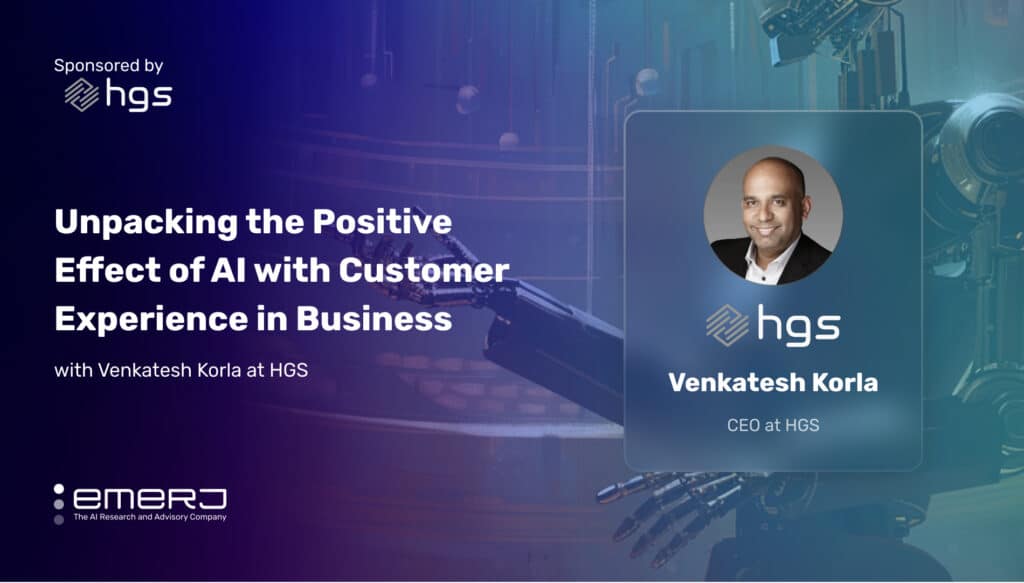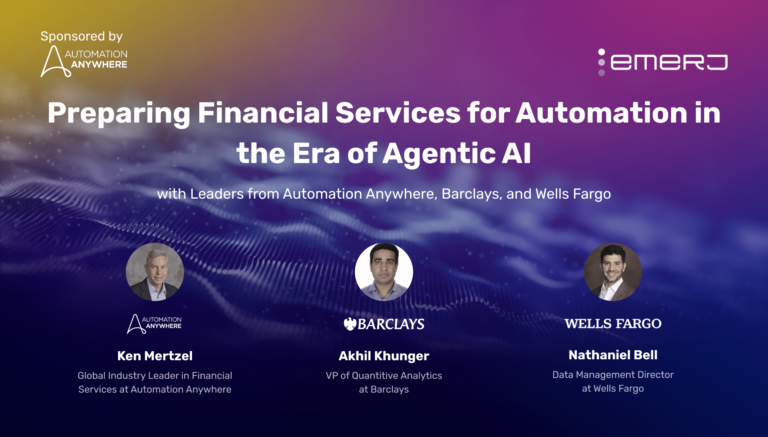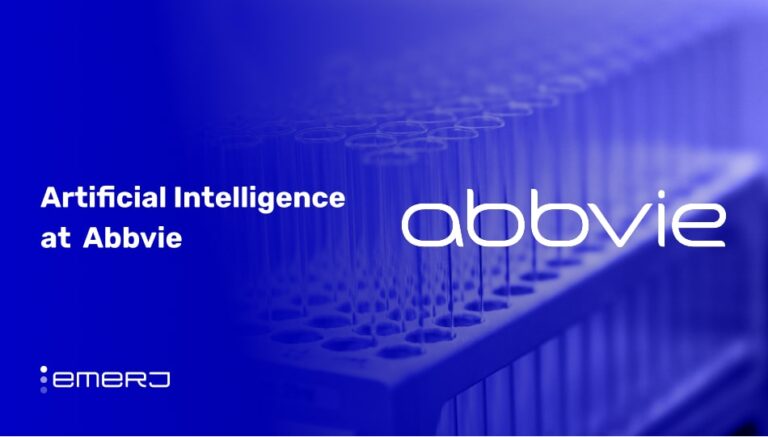Generative AI (GenAI) is rapidly transforming customer service, helping enterprises cut costs, boost efficiency, and meet regulatory requirements.
According to research from the US Bureau of Labor Statistics, implementing a GenAI-powered assistant led to a 14% increase in successfully resolved customer issues in a Fortune 500 company. Such growth demonstrates AI’s ability to efficiently handle routine customer service tasks without compromising service quality.
Another study by the National Bureau of Economic Research found that newer agents who used AI-powered assistance resolved 34% more customer issues per hour than those without AI support. Leveling up human capabilities at these rates highlights how AI can act as an on-the-job training tool, helping less experienced agents become more efficient.
As companies see measurable ROI from GenAI, scaling adoption remains a challenge. However, handling routine customer requests manually represents an even bigger obstacle for call center leaders, driving up operational costs and limiting agent productivity. GenAI allows enterprises to automate these repetitive inquiries, reducing the burden on human agents while maintaining service quality.
By leveraging AI-powered automation, companies can redirect human resources to complex, high-value tasks, improve customer satisfaction, and optimize cost efficiency.
In conversation with Emerj CEO and Head of Research Daniel Faggella on the ‘AI in Business’ podcast, Venkatesh Korla, President and CEO of HGS Americas, explores practical strategies for enterprise deployment and outlines essential strategies enterprises should implement to maximize GenAI’s impact in contact centers.
This article analyzes the following key insights from their conversation, especially for customer experience leaders:
- Deflect simple calls with GenAI to improve efficiency and reduce costs: Using GenAI to handle everyday customer requests allows teams to redirect their focus to more challenging and rewarding tasks, ensuring better resource use and reducing operational expenses.
- Leverage AI assistants to empower agents and enhance customer satisfaction: Integrating GenAI as a real-time support tool for agents will help them communicate with customers empathetically and efficiently, shorten wait times, and make customer conversations more natural.
- Automate disclosure creation for compliance and accuracy: Leveraging GenAI to create personalized, real-time disclosure statements during calls ensures regulatory compliance, reduces errors, and allows agents to fully engage with customers instead of being tied up with repetitive administrative tasks.
Listen to the full episode below:
Guest: Venkatesh Korla, President and CEO, HGS Americas
Expertise: Customer experience transformation, business process management, contact center operations
Brief Recognition: With over two decades of experience leading AI-driven customer engagement solutions, Venkatesh Korla drives HGS Americas in delivering innovative, large-scale customer experience transformations for global enterprises.
Deflect Simple Calls with GenAI to Improve Efficiency and Reduce Costs
Venkatesh begins by outlining three clear strategies for deploying GenAI to handle routine, “simple” calls many call centers receive regardless of industry or specific customer challenges:
- Prioritize high-volume, low-complexity calls for AI handling
- Enhance agent productivity by eliminating repetitive tasks
Prioritize High-Volume, Low-Complexity Calls for AI Handling
Contact centers receive a disproportionate number of simple inquiries, such as:
- Password resets and login issues
- Billing inquiries and payment processing
- Credit card replacements and address updates
Venkatesh emphasized the importance of focusing AI on the right types of interactions first: “By identifying the simple call drivers and deflecting those calls to GenAI, you free up the [human] agents to be able to handle more complicated calls, like the brand ambassadors,” he says.
By automating common customer issues, businesses can reduce wait times, decrease operational costs, and ensure that agents are focused on interactions requiring human expertise.
Enhance Agent Productivity by Eliminating Repetitive Tasks
The HGS executive notes from his experience that GenAI deflects simple calls and supports agents by minimizing time spent on redundant administrative work.
Venkatesh reinforces this by explaining how AI-powered assistive tools improve contact center efficiency:
“For an agent, searching the knowledge base, finding the information, collating it, summarizing it, and then synthesizing it to relay to the customer takes time. There’s a lot of dead silence time on calls. GenAI eliminates that.”
— Venkatesh Korla, President and CEO of HGS Americas
By offloading time-consuming, repetitive processes, GenAI enables contact centers to maximize agent efficiency and enhance overall service quality.
Ensure Seamless AI-to-Agent Handoffs for Complex Cases
While AI can manage structured, predictable inquiries, some customer issues require human expertise. A key challenge in AI adoption is ensuring that when escalation is needed, it happens efficiently and seamlessly.
Venkatesh also highlights that leading AI-driven contact centers use real-time sentiment tracking to determine when AI should hand over a conversation to a human agent:
“The question is, ‘Can I improve the sentiment from the time they join by X percent?’ Absolutely. In a traditional customer service call, the sentiment goes further down. With AI supporting the agent, you can actually see sentiment improvement.”
— Venkatesh Korla, President and CEO of HGS Americas
To create a smooth AI-human collaboration, enterprises should:
- Implement automated escalation triggers based on customer frustration levels
- Provide AI-generated transcripts to agents before the takeover
- Continuously train AI models to refine response accuracy
By ensuring a fluid AI-to-agent transition, businesses can prevent customer dissatisfaction, reduce churn, and maintain high-quality service while benefiting from AI-driven efficiency.
Leverage AI Assistants to Empower Agents and Enhance Customer Satisfaction
Beyond automating routine inquiries, GenAI is transforming customer service by acting as a real-time support system for agents. Instead of replacing human expertise, AI-powered assistants provide instant, context-aware insights, enabling agents to communicate empathetically and resolve issues more efficiently.
While outlining how AI assistants help agents enhance customer conversations while improving operational efficiency, Venkatesh is quick to emphasize that effective customer service requires more than data — it needs empathy and adaptability. AI-powered assistants help agents adjust their responses dynamically, ensuring that interactions remain smooth, efficient, and customer-focused.
As Venkatesh explains: “Using those conversations as examples will drive GenAI to continue to manifest the answers similarly because it really is constructing the language from the data you provided.”
In his experience, The long wait times and disjointed calls that frustrate customers are often due to agents searching for information or transferring calls. In the last few years, he has noticed GenAI reducing these issues by delivering real-time insights and next-best-action recommendations to agents:
“For an agent, searching the knowledge base, finding the information, collating it, summarizing it, and then synthesizing it to relay to the customer takes time. There’s a lot of dead silence on calls; the interactions aren’t natural. There are times when you put the customer on hold because you’re busy looking for information.
Having Gen AI as an assistant to the agent itself – who can ask it questions, get the response needed, and provide that empathetic, relational response to the customer, where they’re spending more time with the customer than finding information – is hugely impactful.”
— Venkatesh Korla, President and CEO of HGS Americas
To optimize service delivery, enterprises should:
- Implement real-time knowledge retrieval, reducing the need for holds
- Enable intelligent routing based on customer history and issue type
- Automate post-call documentation and follow-up tasks
- Provide instant access to relevant customer information
Automate Disclosure Creation for Compliance and Accuracy
In regulated industries, compliance errors can lead to legal penalties and reputational damage. Yet, manual disclosure processes are often time-consuming and prone to human error.
GenAI automates creating and delivering real-time disclosure statements, ensuring accuracy, regulatory compliance, and a smoother customer experience.
The CEO of HGS Americas explains how AI-driven automation reduces compliance risks and improves agent efficiency. He highlights how even minor errors in manually delivered disclosures can pose serious compliance risks, potentially leading to regulatory violations and financial penalties.
He emphasizes that ensuring accuracy in these statements is critical, as any misstep — such as an agent misspeaking or omitting key information — can have legal and financial consequences for the organization. The advantages of automating disclosures allow enterprises to:
- Ensure 100% regulatory accuracy
- Standardize legal statements across all interactions
- Prevent agent mistakes that could lead to penalties
With AI-driven compliance automation, businesses reduce legal exposure while enhancing service consistency.
Reduce Agent Workload and Focus on Customer Needs
Manual disclosure reading adds friction to customer interactions and wastes valuable agent time. GenAI removes this burden, allowing agents to engage more effectively with customers. “We have been able to listen to the call,” says Korla, describing the tiered process. “Then use GenAI to create the disclosure statement on the fly, and have it read to the customer while the agent is still on the call.”
He notes the key benefits of automated disclosure workflows:
- Free agents from repetitive compliance tasks
- Reduce call handling time
- Ensure disclosures are seamlessly integrated into conversations
By automating disclosures, businesses improve compliance while allowing agents to focus on customer service.

















